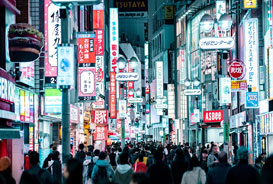Fortune Cookie Culture | Hanami – Cherry Blossom Viewing | Hanami & Scenic Japan Photos | Japanese Food Culture | Marketing in Japan | What’s New | Explore Global Celebrations | View Our Site Guide | Newsletter
Doing business in Japan requires more than understanding etiquette — it calls for decoding the values of harmony, hierarchy, and precision that guide every interaction.
Success depends on interpreting what’s not being said, respecting process over speed, and adapting to a communication style that prioritizes subtlety and shared understanding.

Start by asking the right questions:
The questions below offer a window into what really matters — and where Cultural Savvy can help you uncover the invisible, decode the subtle, and move forward with confidence.
🤝 Core Values Driving Japanese Business Culture
- How do harmony (wa) and consensus influence your Japanese partners’ approach to decision‑making?
- In what ways do humility, respect, and seniority shape leadership, communication, and feedback?
- How much value is placed on process, precision, and preparation versus speed or visible action?
🗣 Communication, Silence & Indirectness
- When your Japanese counterpart is silent, is it hesitation, respect, or simply processing?
- How do you know whether you’re getting full agreement — or whether more behind‑the‑scenes input is still needed (nemawashi)?
- What do non‑verbal cues and the tone of “no response” really communicate in your Japanese meetings?
📚 Language & Hidden Meaning
- What does it mean when a colleague says shō ga nai — and how does this mindset influence problem-solving and accountability?
- When someone says mata renraku shimasu (“I’ll get back to you”), how can you tell if they actually will — and what’s the best way to follow up?
- Can you recognize when someone is expressing honne (true feelings) versus tatemae (public face)? What are the risks if you miss the difference?
- When a meeting ends with apparent agreement, how do you know if consensus has truly been reached — or if further nemawashi (behind-the-scenes alignment) is needed?
⏱ Leadership, Loyalty & Patience
- How much does loyalty to team and long‑term duty affect decisions at various levels?
- How do leaders navigate the balance between showing authority and remaining humble?
- Are timelines and deliverables set with realistic expectations — recognizing the cultural importance of patience and layered consultation?
The Answers Are in the Culture
Every one of the questions above leads to a deeper truth — and the key to answering them lies in understanding Japanese cultural values: the importance of harmony, the power of subtle communication, the strength of loyalty, and the discipline of process.
Even everyday expressions such as shō ga nai (“it can’t be helped”) or mata renraku shimasu (“I’ll get back to you”) highlight how language encodes cultural values — from patience and acceptance to the subtleties of commitment and follow-through.
These cultural dynamics shape far more than etiquette — they influence relationships, trust-building, hierarchy, decision-making, and how success is measured. That’s why cultural awareness isn’t optional in Japan — it’s essential.
At Cultural Savvy, we help your team see beyond surface-level behaviors to interpret what’s underneath — and develop the practical cultural intelligence needed to succeed in Japan and across global markets.
Contact us today to explore how our training and coaching solutions can equip your team to succeed — whether you're tackling global initiatives or navigating complex cross-cultural challenges. We welcome the opportunity to support your goals — across cultures, across borders, and across the global landscape.
HOME | SERVICES | CULTURAL INTELLIGENCE | EXPLORE CULTURES | INSIGHTS | ABOUT | CONTACT
Email Us | www.culturalsavvy.com | ©1999–2025 Cultural Savvy. All Rights Reserved. Terms of Use
